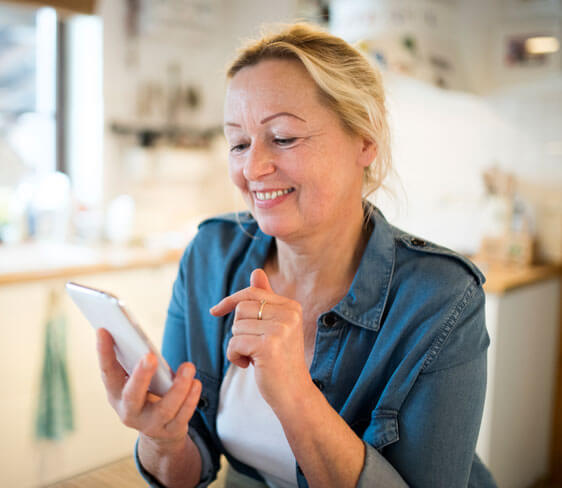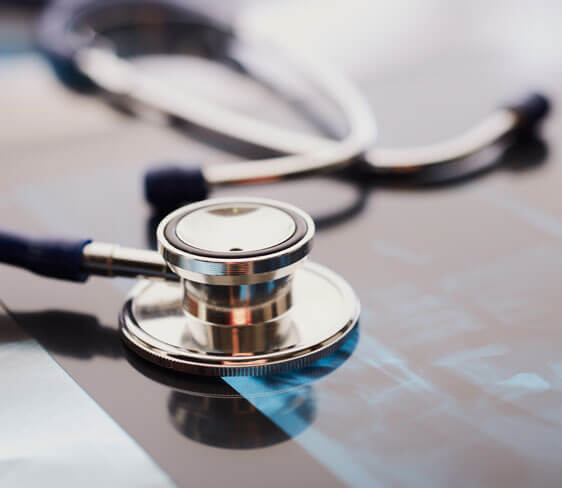What Is a PET-CT Scan?
‘PET’ is short for positron emission tomography. PET creates an image of the chemical activity in your body. The PET scan shows the level of activity in the cells and blood flow in tissues and organs. PET is often used to detect brain disease, blood vessel disease, and cancer. This PET image is combined with a CT (Computed Tomography) image which uses X-rays to produce detailed images of different organs in the body. By combining these two techniques in one scanner, we can provide essential information to help your doctor plan an appropriate treatment for you.
How Does PET-CT Work?
When you have a PET-CT exam, a small amount of radioactive sugar is injected into your blood stream. There is a small amount of radiation involved in the procedure, but the risks associated with this are kept to a minimum.
Any small risk is outweighed by the benefits of having a scan to help in your diagnosis and treatment. The radioactive material joins with natural chemicals in your body and then emits (gives off) tiny invisible particles.
The scanner detects these particles, and the computer displays an image on the screen. The image is colour coded with different colours showing various levels of cell activity. The images are then overlapped with the CT scan images and this gives greater detail as to the position of increased cell activity.
Before your scan
Please contact us before your scan if you:
- Are diabetic.
- Are pregnant (women between 12-55 years of age need to pay particular attention to the pregnancy declaration form. If there is any reason to question your pregnancy status, we will not be able to proceed.)
- Are breastfeeding or have no option to avoid close contact with small children in the 6 hours after your scan.
- Have any disabilities.
- Cannot lie on a flat bed for 30 minutes.
- Are booked for any other appointment on the same day as your scan.
- Require constant care as you will be sitting alone for 1-1.5 hours as part of the process.
It is important that you arrive on time for your appointment. The radioactive sugar, known as FDG or PSMA, that we inject has a very short shelf life. Consequently, if you are late, we may not be able to proceed with your scan. If you are unable to attend or you are delayed, please call us at the earliest opportunity.
What should you wear at your scan?
We suggest you wear loose, comfortable clothing with a minimal amount of metal zips, bra clips, underwire, and buckles. We also suggest leaving jewellery at home as we may need to remove it for the scan.
Preparing for Your Scan
Limit the intake of carbohydrates (bread, pasta, rice, potato) for 24 hours before your appointment.
- Do not eat or drink anything (except water) for 6 hours before your appointment.
- Drink plenty of water but no juices, sodas, alcohol, tea, or coffee.
- Please avoid strenuous exercise 24 hours before your appointment.
- Before the day of your test, tell your doctor all the medicines you take. Follow your doctor’s advice about taking your regular medicines. If your doctor tells you to take your regular medicine, take it only with water.
- If you are diabetic, you should wake up at 6.30am, take your morning medication with half a slice of dry toast, this should regulate your blood sugar levels so that they are between 4-10mmol/l for the scan. Bring your medication with you to the test also. If you are an Insulin dependent diabetic, you should also bring with you whatever food or drink you normally take if your blood sugar levels become low.
Please contact the Department of Radiology on 051-337466 if you have any concerns/queries regarding your blood sugar levels for the PET-CT scan.
If you are breastfeeding, you should express enough milk to last for 24 hours after the test. Someone else should feed the baby for the following 24 hours as close contact with infants should be avoided.
What happens during the scan?
- Once you are checked in, we will guide you to our uptake rooms. Here we will start by completing your pre-scan questionnaire together.
- Next, we will need to check your blood sugar levels. This is done by pricking your finger and placing a small drop of blood onto a testing strip.
- Then, we will need to place an IV cannula in your forearm. We will administer the Radioactive material called FDG or PSMA through this cannula.
- You will then sit quietly in a darkened room for approximately 1- 1.5 hours while the radioactive material moves throughout your body. During this time, you will be alone in the uptake room. This is to ensure minimal disturbance / movement and optimization of the injection. It also ensures that staff who work in this environment every day limit their exposure to radiation. You will be monitored by CCTV. You will also have a call bell if you require assistance.
- Once the radioactive material has been taken up into the body, we will ask you to empty your bladder and then you will be ready to have your scan.
- The scan will take between 15-30 minutes depending on the areas of the body to be scanned. During the scan we may ask you to lie with your hands above your head, and we will do our best to make you as comfortable as possible because the most important thing is that you lie very still.
After your scan
After your scan you are free to leave. We do recommend that someone drives you to and from your appointment as you will be fasting. We do ask that you go straight from your appointment to your home.
The radioactive material we inject is excreted through your kidneys, so it is beneficial to drink plenty of fluids and empty your bladder frequently. This will help minimize your dose.
Your images will be reported by a Radiologist and this report will then be sent to the doctor who requested your scan.
Questions and Concerns About Your PET-CT Scan
It is normal to feel some anxiety before and during a test, but a PET-CT scan should not be a frightening experience. Feel free to express concerns about your test to any member of staff.
Following your PET-CT scan, you will be asked to complete a short Patient Satisfaction Survey to give your feedback.
If you have any concerns, please contact the PET-CT Team at UPMC via email: petctappointments@upmc.ie or phone: 051-337466.

